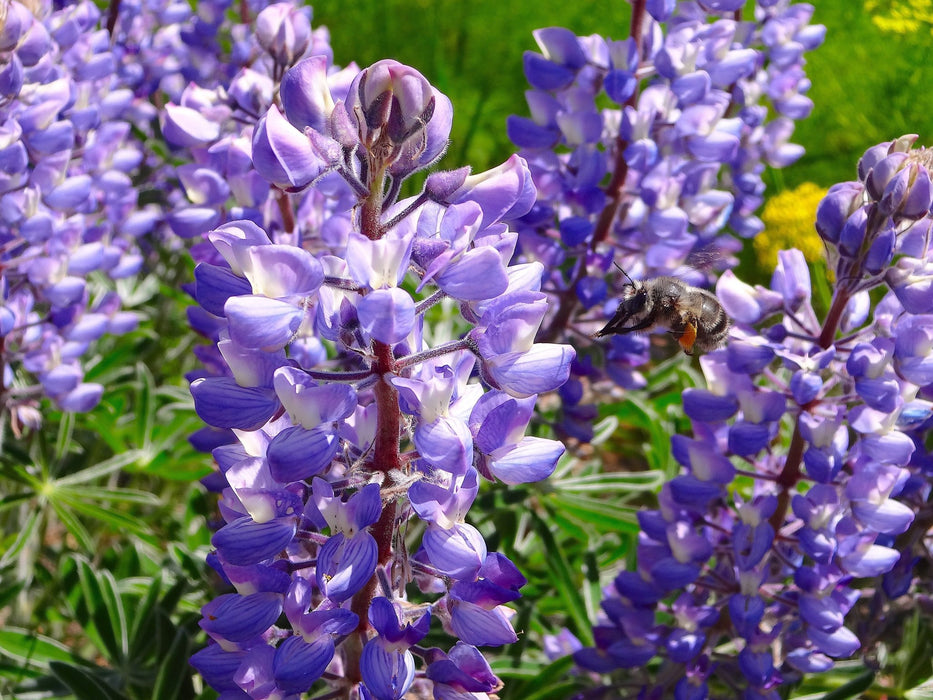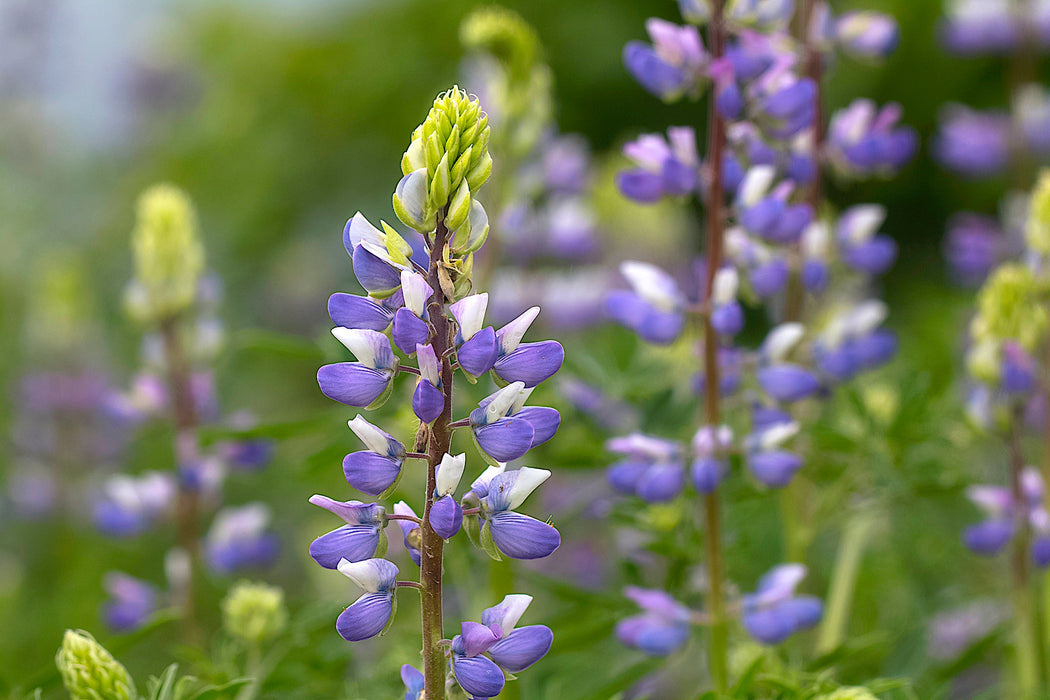
Broadleaf Lupine Seeds (Lupinus latifolius)
Broadleaf lupine is very important host plant for many butterfly caterpillars, including the Persius duskywing (Erynnis persius), Queen Alexandra’s sulphur (Colias alexandra), the western sulphur (Colias occidentalis), the clouded sulphur (Colias philodice), the orange sulphur (Colias eurytheme), the silvery blue (Glaucopsyche lygdamus), the Acmon blue (Plebejus acmon), Boisduval’s blue (Icaricia icarioides), and likely several other species. Additionally this is a sturdy and deer-resistant plant that can adapt to tough conditions – even tough urban locations.
Considered a fast-growing “pioneer” species, broadleaf lupine naturally occurs in areas that were previously burned, or scraped clean (such as avalanche sites). It was even a notable early colonizer of Mount St. Helens after the last eruption. Such adaptation makes this an excellent plant for roadsides, and post-industrial sites.
Yet this is also a showy plant for home gardens where its strongly upright flower stalks (sometimes up to a foot in length) create a beautiful blue-purple display that attracts bumble bees. The mostly evergreen foliage continues to look interesting even in winter.
Broadleaf lupine is similar to riverbank lupine, with this being a longer-lived plant. Growing a bit over 3 feet in height, this is a large-ish, bushy, upright species. While the flower colors are variable, it is sometimes prone to displaying a nice-looking white patch on the banner petal.
Naturally occurring from British Columbia to Baja, broadleaf lupine is widely adapted to different habitats, but in wild conditions we tend to see it in rocky or gravel soils, particularly in places that remain wet for at least part of the year.
Lupine seeds have strong dormancy and may benefit from mechanical scarification, cold stratification, and/or hot water treatments to encourage germination. Once mature, this is one of the few lupines that we know of that can be successfully divided by rhizome sections to create more plants.
Approximately 100 Seeds (2.0 grams).

